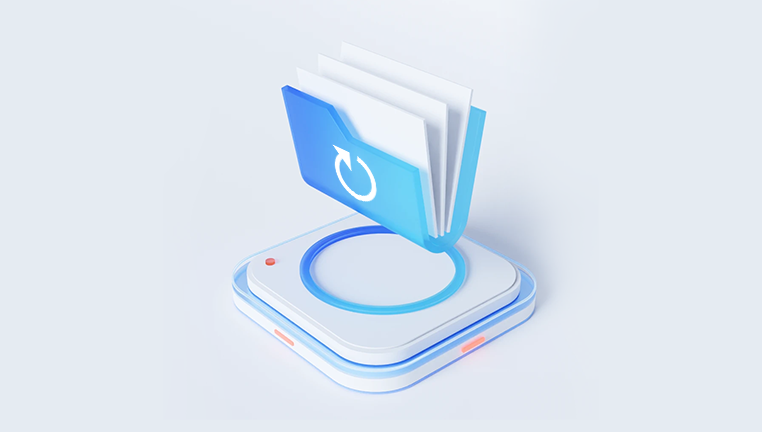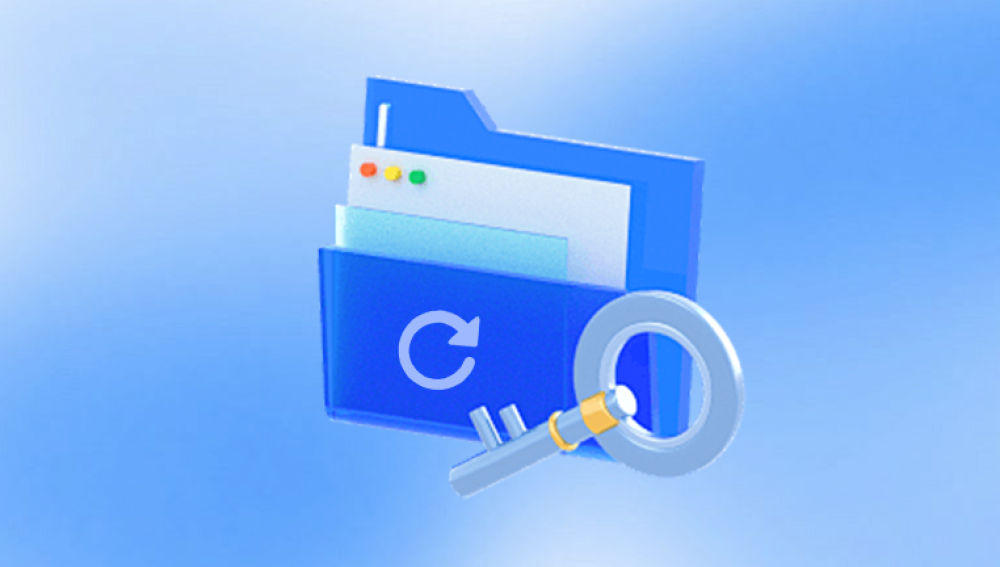Microsoft Word is one of the most widely used word processors in the world, relied on by students, professionals, and casual users alike. Given how integral it is to daily productivity, losing a Word document whether by accidental deletion, software crash, or hardware failure can be a stressful experience.
1. Introduction: Why Word Documents Get Deleted
Before recovering deleted Word files, it's essential to understand what caused the loss. This determines which recovery methods are most likely to work.

Common Causes:
Accidental deletion of Word files
Emptying the Recycle Bin
Power failure or forced shutdown
Microsoft Word crashing before saving
Formatting or overwriting the storage drive
Virus or malware attacks
Hardware failure or file system corruption
Each of these scenarios requires a different recovery approach. Let’s start with the simplest method.
2. Step-by-Step: Check the Recycle Bin
Deleted files on Windows usually go to the Recycle Bin unless shift-deleted.
How to Recover:
Double-click the Recycle Bin icon on your desktop.
Look for your deleted Word document by name or date.
Right-click the file and choose Restore.
This sends the file back to its original folder. If it’s not in the Recycle Bin, try other recovery methods.
3. Use Microsoft Word’s AutoRecover Feature
Word has a built-in AutoRecover feature that automatically saves backup copies.
How It Works:
When Word crashes or is closed unexpectedly, it stores a temporary version of the document.
To Find AutoRecovered Files:
Open Microsoft Word.
Go to File > Info.
If there is an autosaved version, it will appear under Versions.
Select the version and click Restore.
You can also check the AutoRecover location manually:
Go to File > Options > Save.
Copy the AutoRecover file location.
Open File Explorer and paste the path.
Look for files ending in .asd.
If found, open the file in Word and save it properly.
4. Recover Unsaved Word Documents
If Word closed before you hit save, it may still be recoverable.
Quick Steps:
Open Word.
Go to File > Open > Recent.
At the bottom, click Recover Unsaved Documents.
Browse through the list and open the file.
Save it immediately to a secure location.
These documents are temporary and may be deleted if not saved right away.
5. Recover from Temporary Files
Word often creates temporary files while editing documents.
To Search for Temporary Files:
Open File Explorer.
Search for:
*.tmp or ~*.doc
Also try *.wbk (backup files)
Look in these locations:
C:\Users\[YourName]\AppData\Local\Microsoft\Office\UnsavedFiles
%temp% (enter in Run dialog or address bar)
If you find a relevant file, change its extension to .docx and open it in Word.
6. Retrieve Word Files Using Previous Versions
Windows automatically stores shadow copies if System Restore is enabled.
Steps:
Navigate to the folder where the Word document was saved.
Right-click the folder > Properties.
Click the Previous Versions tab.
Select an earlier version and click Open or Restore.
This will show the state of the folder at that point in time, which may include your deleted document.
7. Restore Documents Using File History (Windows)
If you enabled File History, you can recover earlier file versions.
How to Use:
Go to Settings > Update & Security > Backup.
Click More options > Restore files from a current backup.
Navigate to the folder and look for your document.
Restore the file to its original or a new location.
8. Recover Deleted Word Documents from OneDrive
If you store your files in OneDrive, it offers excellent recovery options.
Steps:
Log into OneDrive.com.
Click Recycle Bin on the left panel.
Look for your deleted Word file.
Select and click Restore.
You can also use Version History:
Right-click the file > Version history > restore an earlier version.
This feature saves you from accidental overwrites or deletions.
9. Use Backup Tools (Manual and Automated)
If you use external backup software (like Acronis, Macrium Reflect, or Windows Backup), restore the document from there.
If you’ve manually copied files to an external drive or cloud storage (Google Drive, Dropbox), check those platforms for backups or deleted file recovery.
10. Use Third-Party Data Recovery Software
Drecov Data Recovery
Drecov Data Recovery is designed to scan your computer’s hard drive, USB stick, or external storage devices to locate and restore deleted files, including Word documents in both .doc and .docx formats. Whether your document was deleted, lost due to formatting, or disappeared after a system crash, Drecov Data Recovery increases the chances of successful retrieval.
The software uses deep scanning algorithms that analyze storage sectors to detect and reconstruct lost Word files even those removed from the Recycle Bin. Once scanning is complete, users can preview recoverable documents before restoring them, ensuring they get exactly the file they need.
What makes Drecov Data Recovery especially useful is its intuitive interface. With just a few clicks, even non-technical users can select the target drive, initiate a scan, and recover files. It also operates in read-only mode, meaning it doesn’t overwrite existing data, preserving the integrity of your deleted documents.
11. Repair Corrupted or Damaged Word Documents
Sometimes the file isn’t deleted but refuses to open due to corruption.
Use Word’s Repair Tool:
Go to File > Open.
Browse to the corrupted file.
Click the dropdown next to Open, then choose Open and Repair.
Third-Party Repair Tools:
Stellar Repair for Word
DataNumen Word Repair
These tools can reconstruct damaged Word documents and recover most of their content.
12. Recover Deleted Word Docs on Mac
For Mac users, recovery is also possible using built-in features and tools.
Use Trash:
Check the Trash folder and right-click > Put Back if found.
AutoRecovery:
Navigate to:
swift
CopyEdit
/Users/username/Library/Containers/com.microsoft.Word/Data/Library/Preferences/AutoRecovery
Look for AutoRecover files with .doc or .docx.
Time Machine:
Open the folder where the file was stored.
Launch Time Machine.
Browse past backups and restore your Word document.
Mac Data Recovery Software:
Disk Drill for Mac
EaseUS Data Recovery Wizard for Mac
These can scan for deleted files even after they’ve been permanently removed.
13. Recover Deleted Word Documents from USB or External Drive
External storage is more prone to accidental deletion or formatting.
Steps:
Do not write any new files to the device.
Use data recovery tools like Drecov Data Recovery or Recuva.
Choose the external drive as the scan target.
Filter results for .doc and .docx.
Preview and recover.
Avoid using the same device to prevent overwriting sectors.




